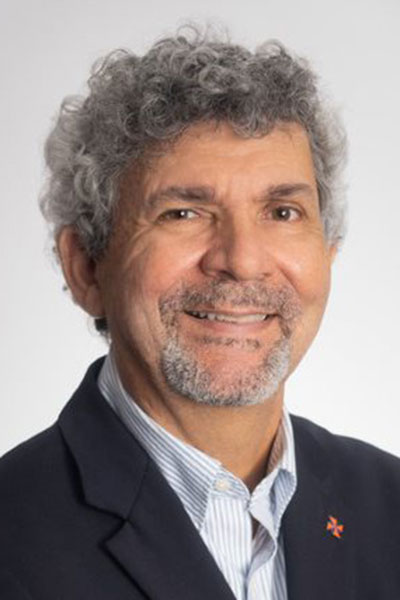New insights into the diagnosis, management, and prevention of COPD will be highlighted in the ATS 2023 International Conference scientific program. The ATS Conference News spoke with David M. Mannino III, MD, about the important dialogue taking place among COPD specialists and what these respiratory health professionals can expect from the conference in Washington, DC, this May. Dr. Mannino is a professor at the University of Kentucky and the medical director and co-founder of the COPD Foundation.
What new developments in COPD can attendees expect to learn more about at the ATS 2023 International Conference?

Dr. Mannino: “There’s always some interesting things going on. One of the components of ATS is it follows the Global Initiative for Chronic Obstructive Lung Disease Report Updates, which comes out in November. In the most recent year, some of the updates from GOLD included new thinking about how we classify COPD. We basically went from an ABCD classification, based on exacerbations and symptomatology, to an ABE classification that focuses on the exacerbations. Exacerbations are important whether or not you’re having symptomatology. I think we’re going to see how that plays out.
“We tend to group all exacerbations together, but hospitalized exacerbations are very different from non-hospitalized ones, so it’s going to be interesting to see how that is looked at or varying degrees of what people consider an exacerbation.
“There’s not a whole lot of new clinical trials coming down, although the phase 3 trial for an inhaled therapy, ENHANCE, closed in November. They rolled out the advance data in December, and they’ve basically demonstrated a reduction in exacerbations for a therapy that is a non-steroid.
“A study that I was a part of was just published in the Journal of the American Medical Association. The CAPTURE study is a screening study for COPD in primary care. It showed encouraging results. They weren’t quite as encouraging as we had hoped, but one of the learnings from that was that doing a respiratory study in the middle of a pandemic has some unique challenges because the screening tool performed much better pre-pandemic than during the pandemic, when people with respiratory complaints were pretty much being excluded from physician offices.
“In the interventional space, there has been a buzz related to how one best puts in valves and gets the benefits without the complications. We’re hoping to see some more on that. If you put in a couple of valves at a time and split the procedure over several interventions, is there a benefit to not putting a person on higher levels of oxygen? It gets air out of the collapsed areas more quickly, which may not be beneficial.”
What advice would you give physicians interested in learning more about COPD to make the most of the International Conference experience in Washington, DC?
Dr. Mannino: “The networking piece of the conference is what makes it the most fun.
“The posters and poster discussions allow you to quickly soak up a lot of different information, and when the author is there, you have the opportunity to hobnob with them for a bit. Typically, when the COPD posters are up, a lot of COPD researchers from around the world are going to be milling around as either presenters or people interested in what is being discussed.”
What is at the forefront of the dialogue surrounding COPD among specialists in this space right now?
Dr. Mannino: “We’re spending a lot of time thinking about early diagnosis. The Lancet Commission report on the elimination of COPD that came out in September 2022 was a masterfully done piece of work that looked at a number of different things, including what we consider COPD, how it’s classified. That generated a good buzz.
“In the concept of early diagnosis and actually what is COPD, is there an opportunity to subdivide COPD by different etiologies—what you get from smoking or environment versus what you get from genetics or infections. These are all fair questions.
“There are also some calls to action in the Lancet Commission report. Research funding in COPD lags well behind other common diseases. We haven’t had a new class of therapy for COPD in a generation, and sadly, a lot of the drug companies have been vacating the COPD space because, in fairness to them, it is so difficult to get therapies approved by the FDA.
“There is a need for the FDA to rethink how they classify or how they approve the therapies because, for the most part, in order to get the therapies approved you have to have improved one’s lung function, and COPD has been defined as a disease where there’s no improvement in lung function. So, the only way we approve therapies is based on something that’s not supposed to happen in this disease.”
What excites you about COPD right now and into the future?
Dr. Mannino: “The 2022 Lancet Commission report is one of the most important works in the COPD space in many years, probably since the COPD gene classification paper rolled out a couple of years ago. The discussions that occur around that are very important and hopefully will change the direction of COPD research. We need to think about earlier disease. Right now when we define disease spirometrically, when the damage is already done, it is way too late in the process. We need to think about how we can classify, identify, and then treat people earlier, and hopefully in the future you get a better grasp on those as we move forward.”
Extend Your Learning Beyond San Francisco with ATS 2025 Conference Highlights

With so many valuable educational opportunities offered during the ATS 2025 International Conference, attendees are often forced to decide which sessions to prioritize. That’s why the Society is offering three ATS 2025 Conference Highlights packages for those unable to attend ATS 2025 San Francisco or attendees interested in continuing their education after the conference. Check out the packages and pick the one that’s right for you. Learn at your own pace, whenever and wherever you are!

